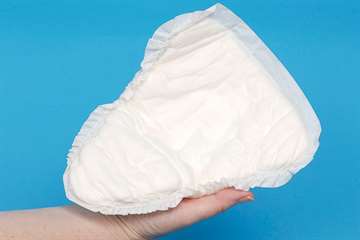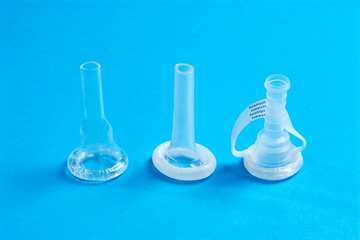What to expect
When your catheter is first removed you may find that you have little or no control over your bladder. Men often report that they were not warned about this and did not expect it. It is impossible to predict how much urine you will leak, but it is likely that your leakage will be quite heavy at first. However, there are things that you can do in advance to prepare.
What can I do?
Find out about the different products available and purchase some beforehand to have ready to take to your catheter removal appointment and to use at home afterwards.
1
There are many different products availableCheck out your local supermarket, pharmacy and discount stores, to see the range of absorbent pads that are available.
Buy some pads in different sizes/absorbencies to have at home for after your catheter is removed.
We suggest buying a pack of small light absorbency pads, to be worn with tight fitting underwear for example:
And a pack of larger heavier absorbency pads for example:
3
Large all-in-one style pad (moderate/heavy incontinence)To see the full range of pads available
Anything else I need to know?

If you are in the UK, you can order a Prostate Cancer UK surgery support pack. This contains samples of absorbent pads, disposal bags, hand wipes and written information on surgery and urinary problems after surgery. You may be given one by your Urology nurse specialist or you can contact PCUK directly to get your pack.
[image:5: A section of sheaths]
Consider ordering some free samples of urinary sheaths, which are an alternative to pads for men with bladder leakage. These can be useful if your leakage remains heavy and you find that it is restricting your daily activities. Manufacturers often advertise free samples and provide advice on the right product to use.
It is important to be aware that surgery for prostate cancer can leave you with a shortened (or retracted) penis after the operation, so sheaths that are the right size before the operation may not be the correct size afterwards. This means that you may have to measure yourself again before using a sheath. See our [video guide on Sheath measuring]. (link to sheath page videos)
4